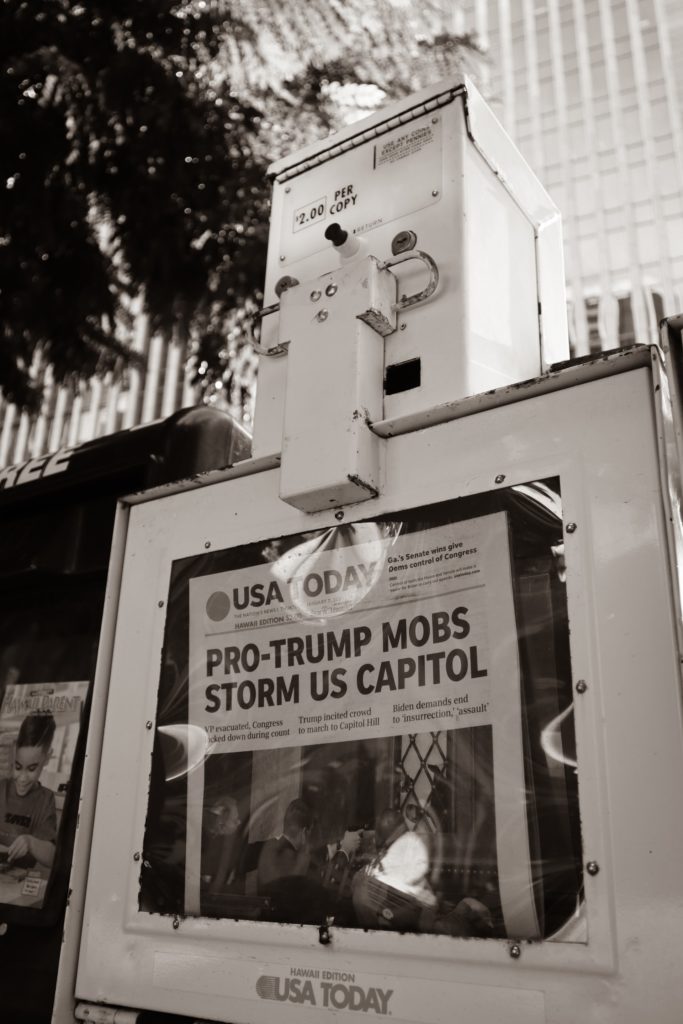-
Jan 12 2021 Are We Examining Our Own Truths?

The events of the past week have unsettled many Americans, including me. Never in my life did I expect to see people who consider themselves patriots storming the U.S. Capitol. It’s perhaps the starkest example of how very divided we’ve become.
Truth, Justice, and the American Way
The question is: how did we get here? When I grew up, most people I knew believed that Americans, flawed though we may be, stood up for truth, justice, and the American way. We thought the other political party was misguided but not evil. I’m white and middle-class, and I spent most of my time with others who were also white and middle-class, so growing up I was largely blind to the festering prejudices inherent in so many of our social and governmental systems.
When President Obama was elected, I thought our nation was evolving beyond its bigotted past; I felt so proud. When President Trump was elected, I was stunned. I couldn’t understand how such a vile man and unqualified candidate could be chosen.
Questioning “Facts”
During the last four years, I’ve watched the chasm deepen between our two political parties to the point where Americans are no longer living in the same realities. I’ve also become even more aware of my own privilege, thanks in large part to the Black Lives Matter movement. As a result, I’ve begun digging into the sources of my beliefs and questioning many of the “facts” I took for granted.
As it turns out, this is kind of an uncomfortable process. Like others, when I believe something is true, I unconsciously look for evidence to reinforce that belief and I discount information that doesn’t align with my preconceived notions. So, how have I started to change my beliefs? First, I had to decide to question their veracity. If you’re not interested in exploring your own truths, it’s way harder to overcome misconceptions.
The next part of this process has involved trying to understand the motivations and mindsets of people who think very differently from me, rather than discounting them as wing-nuts when their ideas and behaviors don’t match my way of thinking. I’m working to ask open-ended questions like, “What would someone have to believe to do or say that?”
What Causes the Shift
The times I’ve had realizations that fundamentally changed my way of thinking have usually been tied to conversations with people I trust and admire, times when friends were brave enough to disagree with me and question my assumptions and assertions in a firm but loving way. The conversations haven’t been detached and logical, but rather emotional, even passionate.
Many of us were taught to avoid uncomfortable conversations, admonished never to discuss religion and politics in polite company. I understand how leaving these subjects alone can keep the peace in families and among friends, but I worry that as a society we’ve lost the ability to respectfully challenge others’ assumptions or even our own. Our echo-chambers are ruining our ability to think critically as individuals, communities, and as a nation.
Some Discomfort it Healthy
Healthy debate is just that–healthy. It may not be comfortable, but if people can stay focused on the issues rather than attacking each other’s integrity, honesty, and intelligence, and if we can engage in conversations with the goal of learning rather than proving our point, we’ll all be a lot better off.


